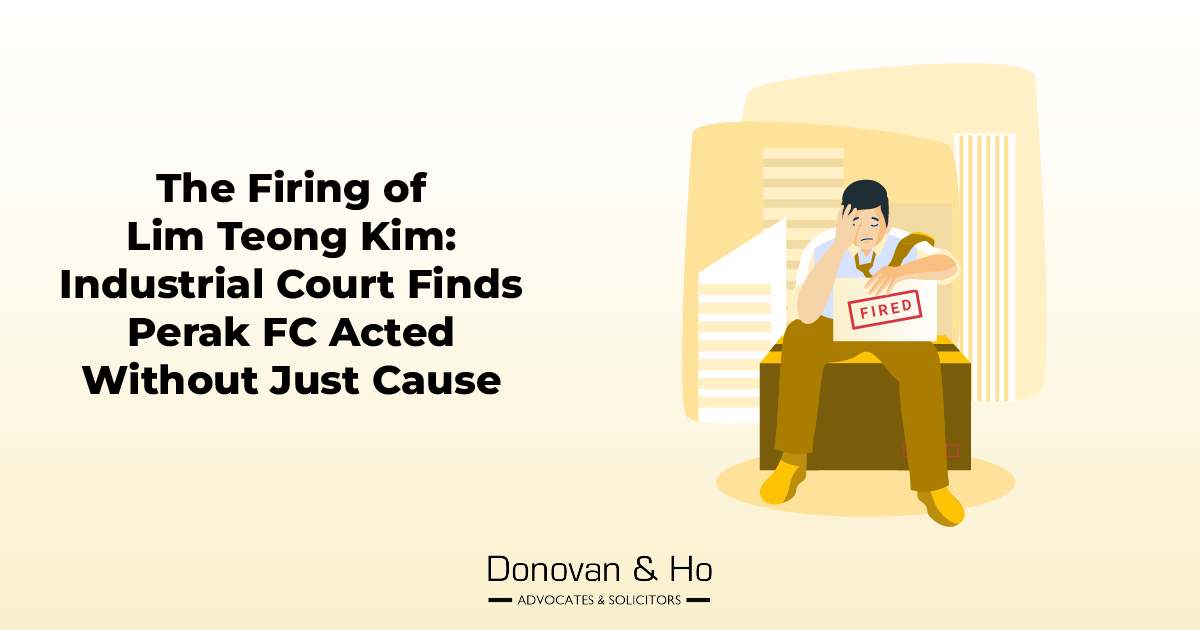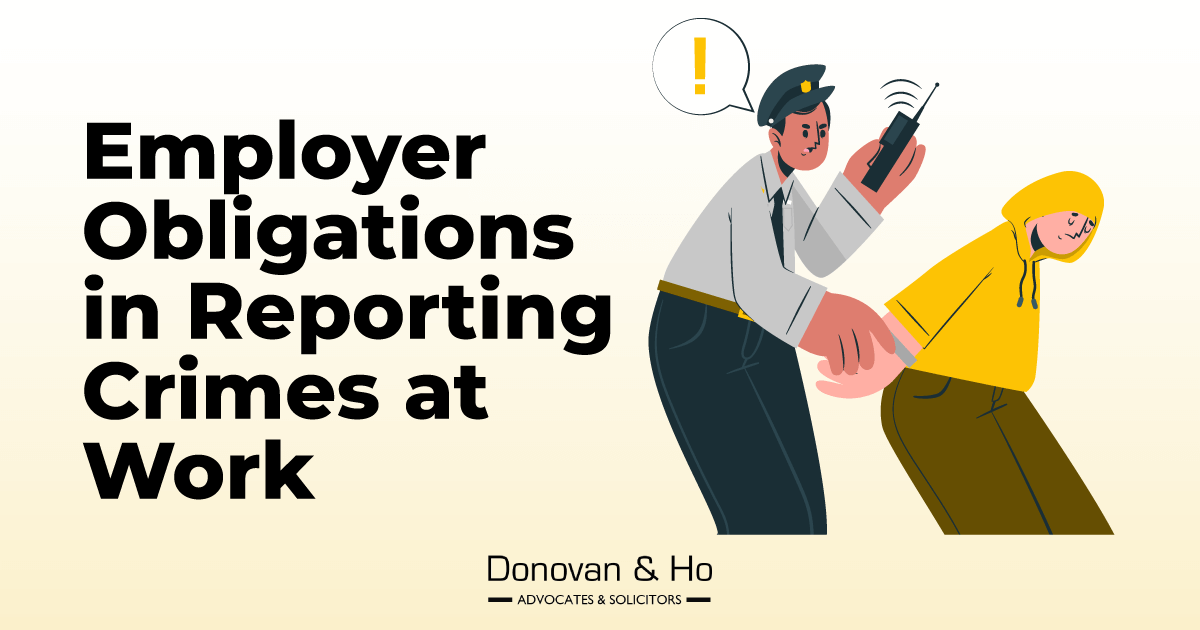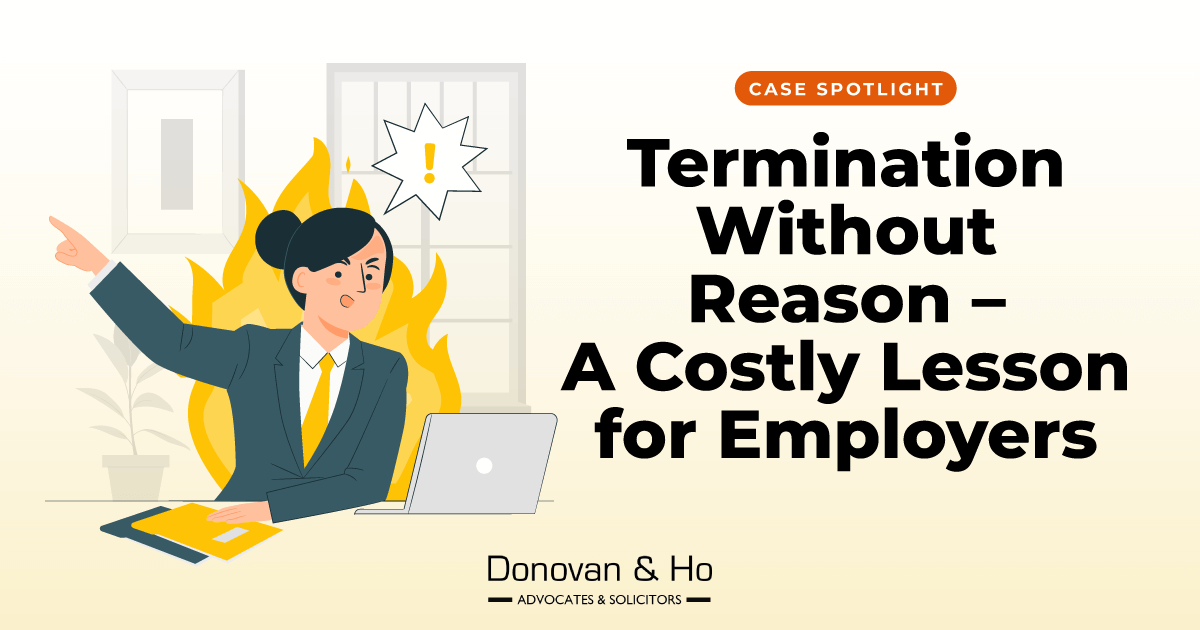The Industrial Court in Lim Teong Kim v. Perak FC Sdn Bhd (Award No. 1255 of 2025) delivered a significant decision on the termination of the former Head Coach of Perak FC, ruling that his dismissal was without just cause or excuse. The award not only sheds light on the principles of unfair dismissal under the Industrial Relations Act 1967 but also reinforces the doctrine against double punishment in employment law.
Brief Facts
- The Claimant, Lim Teong Kim, is a seasoned coach with international credentials, most notably with FC Bayern Munich from 2000 to 2012, where he was involved in the development of world-class players such as Thomas Müller, Toni Kroos, Emre Can and David Alaba;
- In 2022, after stints as Director of the National Football Development Programme and Head Coach of the Malaysia U-16 National Team, he entered a two-year fixed-term contract with Perak FC in September 2022 as Head Coach;
- His contract contained clear KPIs, including league placement targets, talent recruitment, and long term development of Perak FC;
- Despite early challenges such as infrastructure issues, management interference, and strained relations, the Claimant sought to implement a long-term vision for the club.
- However, following a series of defeats and a controversial post-match interview, the Claimant was issued a final warning in April 2023 and required to issue a public apology, which he duly complied with.
- A Performance Improvement Plan (PIP) was also imposed, requiring him to secure certain points and resolve player complaints.
- Despite meeting the PIP requirements and showing no further disciplinary issues, Perak FC terminated his contract in May 2023, citing “unsatisfactory team performance and results”.
The Issues Before the Court
The Industrial Court considered two main questions:
- Was the termination justified on the grounds of unsatisfactory performance?
- Did the dismissal amount to double punishment, given that the same issues had already been dealt with via a final warning and apology?
The Court’s Findings
The termination letter only cited unsatisfactory team performance and results as the ground for dismissal. The Court stressed that it can only consider the reasons given in the termination letter, consistent with the Federal Court’s ruling in Maritime Intelligence Sdn Bhd v. Tan Ah Gek [2021] 10 CLJ 663. Attempts by Perak FC to rely on earlier misconduct allegations were rejected because those were not operative reasons at the time of dismissal.
Earlier, on 6 April 2023, the Claimant had been issued a final warning letter for alleged misconduct (post-match interview, media comments, conduct during matches). He was also required to issue a public apology, which he did. The company accepted this and treated the matter as concluded. Despite this, Perak FC later attempted to revisit these same incidents to justify his termination. The Court held that this amounted to double punishment as an employee cannot be punished twice for the same misconduct, a position that is trite.
The Court reviewed the video evidence of the Claimant’s controversial response after a 5-0 defeat. It held that his remarks were understandable, made in an emotional and high-pressure environment. The Court noted that such blunt responses are common among top football managers globally (examples cited: Sir Alex Ferguson, Arsène Wenger, José Mourinho, Jürgen Klopp). The Claimant’s remarks were relatively mild by comparison.
At the point of dismissal, Perak FC was placed 11th in the league, only two spots below the 9th position KPI, and still within reach of the season’s target. The Court noted that the termination was premature and reflected a knee-jerk reaction motivated more by commercial pressures than just cause.
Key Takeaways
This case extends beyond the confines of a single Industrial Court dispute. It reflects deeper structural issues in the way some employers in Malaysia (including, or perhaps especially, football clubs) approach workforce management.
Perak FC’s handling of the Claimant’s employment illustrates a culture of short-termism and knee-jerk decision making which is not uncommon in some industries. High level employees may often be given assurances about resources, career development and long-term opportunities, only to see these commitments abandoned when immediate expectations are not met.
Ultimately, this decision serves as a reminder that football clubs and other employers cannot escape accountability in the way they manage and end employment relationships. It underscores the importance of upholding contractual and legal obligations, resisting impulsive decisions, and ensuring employment practices are consistent, transparent, and fair. Sustainable progress in any workplace comes not from quick fixes or scapegoating, but from sound governance, proper policies and procedures, and a genuine commitment to professional management.
***
This article was written by Zi-Han Lim (Partner) from Donovan & Ho’s employment law practice.
Donovan & Ho is a law firm in Malaysia, and our employment practice group has built a reputation for providing strategic employment advice to local and global organisations. Our team of employment lawyers provide advice on employment law and industrial relations including review of employment contracts, policies and handbooks, advising on workforce reductions, and managing dismissals of employees for poor performance or misconduct. We also represent clients in unfair dismissal claims and employment-related litigation.
Have a question? Please contact us.






